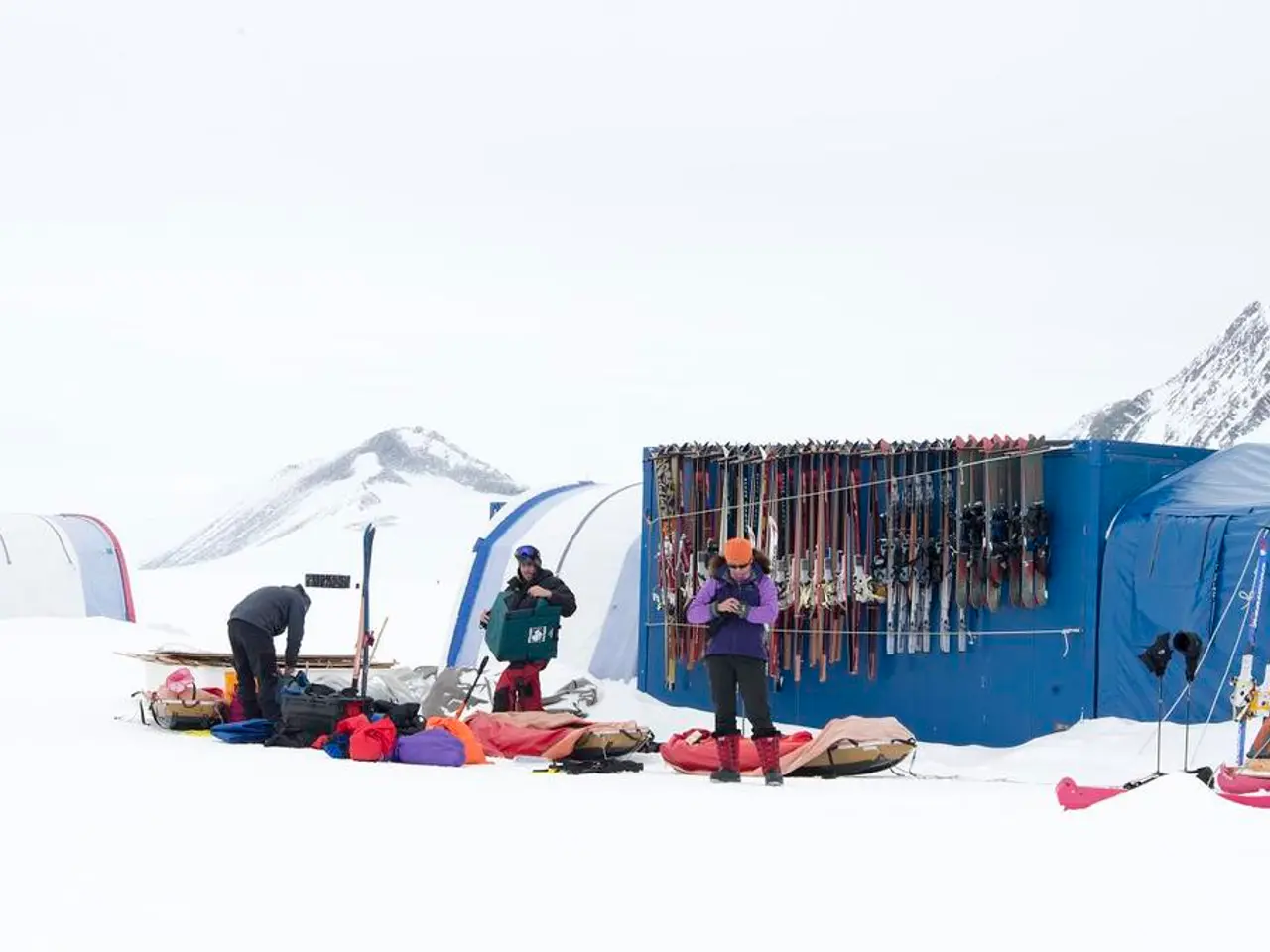Melted snow in the Alps leads to water scarcity
The French Alps are currently facing a severe water crisis, as the rapid melting of snow and glaciers is threatening the survival of mountain shelters and their water supply. This early melting, which occurred nearly a month ahead of schedule, has led to water shortages in refuges relying on natural mountain water sources.
One such refuge, the Selle refuge located at an altitude of 2,673 meters in the Ecrins mountain range, is experiencing severe water shortages due to the dwindling snowfields that typically supply its water. Noemie Dagan, who manages the Selle refuge, has stated that the snowfield supplying water to her chalet is already resembling what she would expect in late July or early August.
The accelerated melting of the Bossons Glacier, a massive ice tongue overlooking the valley before Chamonix, is a concern for the rest of the summer. The melting of the Bossons Glacier is causing it to absorb more heat due to its dark color, which is speeding up the melting process.
Precipitation has become scarcer in the French Alps, making the situation even more critical. To mitigate this issue, refuge operators like Noemie Dagan have implemented backup solutions, such as installing plastic pipes to collect water from nearby glaciers. However, these measures face challenges due to unstable terrain and increasingly violent storms.
The French Alps are experiencing a heat wave that is causing snow and glaciers to melt faster. Thomas Boillot, a local mountain guide, has stated that the possibility of water supply issues affecting mountain shelters was never previously considered. Xavier Cailhol, an environmental science doctorate student and mountain guide, described the current heat wave's impact on the Mont Blanc massif as "brutal".
Scientists predict that only remnants of today's glaciers are likely to exist by 2100 in the Alps. This alarming prediction underscores the broader environmental changes impacting the Alps' ecosystems and sustainable tourism practices. Dagan describes the mountains and glaciers as "our water towers." In the future, water will have to be pumped from below instead of arriving through gravity.
The impact of climate change is nearly twice as severe in the Alps compared to globally. As the situation continues to worsen, it is crucial for authorities and refuge operators to find sustainable solutions to ensure the survival of these vital mountain shelters and the protection of the Alps' unique ecosystems.
- The rapid melting of snow and glaciers in the French Alps, due to climate change, is not only threatening the survival of mountain shelters like the Selle refuge but also causing an alarming shortage in health-and-wellness resources, such as clean drinking water.
- As the French Alps grapple with climate change and the subsequent melting of glaciers, scientists are focusing on environmental-science research to develop solutions that will not only preserve these critical water sources for fitness-and-exercise locations like the mountain refuges but also protect the overall health of the ecosystems in the area, particularly the Mont Blanc massif.




